 The following opportunities have been announced. Please follow the links for more information:
The following opportunities have been announced. Please follow the links for more information:
The BBSRC Visualising Research competition for designers, graphic artists, software developers, programmers and anyone with an interest in data visualisation is now open. The purpose of this challenge is to develop visualisations of the Gateway to Research data that can be easily understood by the public. Displaying these data in an accessible way will also have benefits for a range of sectors, stakeholders including policy makers, other funding bodies and the media. A prize of £2,000 will be awared on 28/4/14. The closing date for application is 21/03/14.
The EPSRC‘s Centre for Power Electronics is pleased to announce an external call for proposals for funding to carry out Feasibility Studies which align or deliver to the Centre’s vision. Central to this call is the need for submissions to deliver to the vision of the Centre in supporting innovation in the UK power electronics sector. Up to £70,000 per project is available. The closing date is 15:00 on 10/04/14.
In addtion, the EPSRC are support Cross-Cutting Topic Projects (scroll down on page for this call). Up to £300,000 is avaialble per proejct. The closing date for this call is also 15:00 on 10/04/14.
Through the EPSRC, the RCUK Energy Programme invites expressions of interest from those willing to attend a workshop in Oxford to develop Phase 3 of the UK-India civil nuclear research programmes. The EoI must be submiited by 04/04/14. The workshop is expected to take place 10/06/14 to 12/06/14.
The MOD’s Centre for Defence Enterprise (CDE) (part of the Defence Science and Technology Laboratory (Dstl)), seeks applications regarding Novel electro-optic infrared technology. There will be a webinar for this competition on Thursday 6 March 2014. The closing date is 08/04/14.
The NERC Standard Research Grants is an open competition for curiosity-motivated basic, strategic or applied research in the environmental sciences. Proposals are assessed on their scientific excellence. A minimum of £65,000 to a maximum of £1.2m is awarded. The next round will close on 22/07/14.
Through NERC, the ESPA-2014 Grants call is for ‘blue skies’ research projects designed to significantly advance global understanding on the way that ecosystem services contribute to poverty alleviation, with specific emphasis on generating new understanding that can benefit poor people in low-income countries (LICs). Research funded under ESPA-2014 is expected to inform thinking and practice over, at least, the next decade, representing a step-change in the knowledge and evidence that will underpin future activities in ESPA’s sphere of activity. Awards of up to £150,000 are available. The closing date is 16:00 on 14/05/14.
NERC is inviting applications to host workshops. One of the activities that helps integration and interaction across the Biodiveristy and Ecosystem Service Sustainability (BESS) projects and extends BESS science into the wider community is through NERC’s programme of workshops and working groups. BESS has internal funds for supporting this activity which can be applied for at any time. Up to £8,000 can be awarded for each workshop, which could include travel for up to two international participants.
The Wellcome Trust invites application from PhD student or junior fellows, funded through the Wellcome Trust Medical Humanities (MH) programme, to undertake a three-month fellowship at the Parliamentary Office of Science and Technology (POST). The Fellowship allows unique access to a parliamentary and policy-making setting, thereby facilitating the real-world application of policy relevant research in medical humanities. Applications should reach the Wellcome Trust by 22/11/014.
The Wellcome Trust has announced the Parliamentary Office of Science and Technology Fellowship in Society and Ethics. This scheme enables a Wellcome Trust-funded PhD student or junior fellow to undertake a three-month fellowship at the Parliamentary Office of Science and Technology (POST). If successful in applying, a fully funded three-month minimum extension to the PhD or fellowship award will be supported, and any maintenance grant will also be paid while based at POST. Travel and accommodation needs will also be considered. Closing date 02/04/14.
Please note that some funders specify a time for submission as well as a date. Please confirm this with your RKE Support Officer.
You can set up your own personalised alerts on ResearchProfessional. If you need help setting these up, just ask your School’s RKE Officer in RKE Operations or see the recent post on this topic, which includes forthcoming training dates up to November 2014.
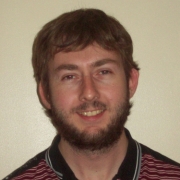
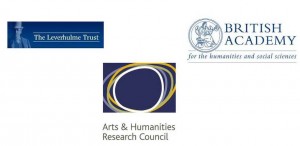



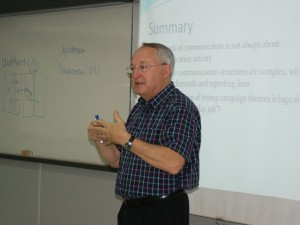

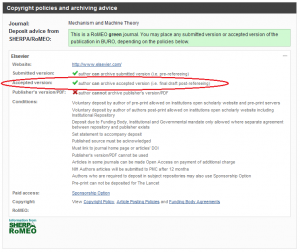





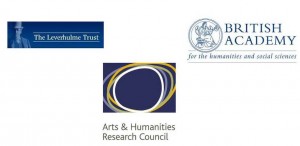
















 Interdisciplinary Computational and Clinical Approaches at the Edge of Brain Research
Interdisciplinary Computational and Clinical Approaches at the Edge of Brain Research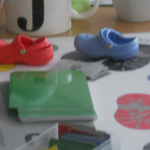 BU graduate’s paper read 600 times
BU graduate’s paper read 600 times BU academic listed on Research.com
BU academic listed on Research.com Congratulations to Social Workers Drs. Oliver & Harvey
Congratulations to Social Workers Drs. Oliver & Harvey Questioning AI
Questioning AI Apply for up to £1,000 to deliver an event and take part in a national festival of public engagement with research
Apply for up to £1,000 to deliver an event and take part in a national festival of public engagement with research MSCA Postdoctoral Fellowships 2024
MSCA Postdoctoral Fellowships 2024 Horizon Europe News – December 2023
Horizon Europe News – December 2023